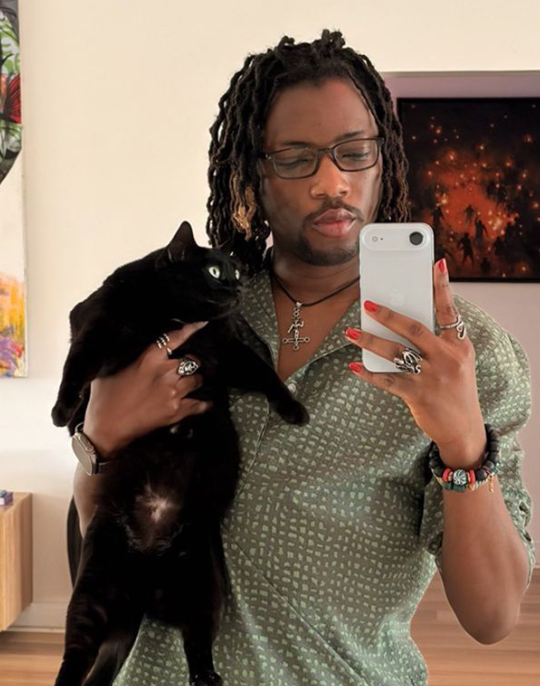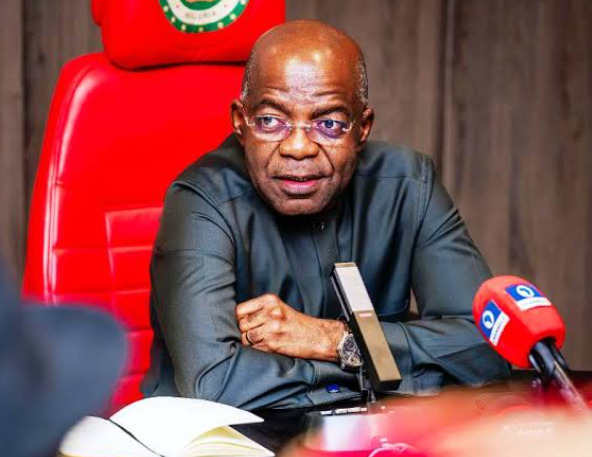
“We Are All Ezra” — Man Offers Spiritual Take on Controversy Surrounding Tech CEO Ezra Olubi

The recent social media storm surrounding tech entrepreneur Ezra Olubi has taken a surprising turn, drawing not just heated debate but also reflective commentary from unexpected quarters. While many on platforms like X have focused on condemning Olubi’s past tweets and questionable online behavior, one user, Dr. Baridueh Badon, offered a perspective that went beyond the usual outrage. In a post that has since gained traction, Dr. Badon framed the controversy in a broader, more spiritual context, prompting thousands to pause and consider a different lens through which to view the unfolding saga.
Dr. Badon, known for his thoughtful and often faith-oriented commentary, responded directly to a viral post about Ezra Olubi, the tech CEO and public figure who has recently faced backlash for resurfaced tweets. Instead of weighing in with condemnation or judgment, Dr. Badon wrote, “Ezra is you and me. We are no better. You don’t know what he has gone through for his soul to be bastardized that way. I pray he finds Jesus, who is able to save and transform him. We are saved by grace through faith, and our soul is transformed by the word and prayer through the Spirit.”
The response immediately stood out for its introspective and empathetic tone in the middle of a storm that had largely been characterized by blame, anger, and public shaming. In a time when social media often amplifies division, Dr. Badon’s comment reminded many that human complexity cannot be reduced to a single series of actions or statements. The idea that anyone—even a public figure with a troubling past—deserves the opportunity for redemption resonated with a portion of the online community, prompting shares, likes, and lengthy discussions in comment threads.
Following Dr. Badon’s post, some users engaged with a mix of skepticism, humor, and curiosity. One user, Oluwaseun, questioned the authenticity of the name “Ezra” in a series of messages that ranged from confusion to outright disbelief. In a casual back-and-forth with a person referred to as “Daddy,” Oluwaseun asked if anyone had actually given him the name Ezra during his naming ceremony, a humorous yet telling subplot that highlights the human tendency to probe identity and legitimacy. The conversation included a voice call and multiple text exchanges, with “Daddy” offering cryptic advice, warning about “fake prophets” and encouraging caution. The thread, while seemingly tangential, mirrored the deeper questions people are asking about identity, accountability, and the narratives we accept or reject.
This incident serves as a microcosm of a larger social dynamic, where the tension between judgment and empathy plays out publicly. The question of how to respond to past mistakes—particularly those committed online, where anonymity and impulsivity often amplify harmful behavior—is one that continues to challenge communities and individuals alike. For many observers, Dr. Badon’s framing offered a counter-narrative to the prevailing sentiment of outrage. By positioning Olubi as “you and me,” he invited the public to consider the underlying struggles that shape human behavior and to reflect on the possibility of transformation.
Critics of Dr. Badon’s approach argue that spiritual or empathetic framing risks excusing or minimizing harmful behavior. In the case of Ezra Olubi, whose past tweets have resurfaced with disturbing content, some commentators maintain that public figures must be held accountable for the influence they wield. Accountability, they argue, is not mutually exclusive with empathy, but the timing and context of Dr. Badon’s post left some questioning whether it downplayed the severity of Olubi’s actions.
On the other hand, supporters have lauded Dr. Badon for reminding the public of the complexity of human morality. In an era dominated by social media outrage and cancel culture, calls for patience, reflection, and spiritual intervention provide a counterbalance to reflexive condemnation. Followers of the thread noted that his perspective aligns with broader theological principles about grace, repentance, and transformation, concepts that are central to many faith traditions but often overlooked in online discourse.
The discussion around Ezra Olubi also intersects with broader societal questions about identity, personal history, and accountability. As users like Oluwaseun probed the legitimacy of his name and its implications, it became clear that the controversy touches on both public perception and personal narrative. Social media, with its instantaneous dissemination of information and opinion, magnifies these questions, sometimes blurring the lines between curiosity, mockery, and genuine inquiry. The playful yet probing exchanges in the thread reflect the way in which digital communication mediates human relationships, shaping how society evaluates both public figures and the values they represent.
Experts on social media dynamics note that controversies like these are not just about the individual at the center, but about collective ethics and the ways communities enforce norms. The surge of reactions—from condemnation to empathy—illustrates the spectrum of societal responses to perceived moral failure. It also highlights the role of influential voices like Dr. Badon, who can steer public conversation in directions that are reflective, rather than reactionary. By framing the debate in spiritual terms, he introduces the notion that transformation is possible, not just for Olubi but for anyone grappling with the consequences of past actions.
This episode also underscores the evolving nature of reputation in the digital age. Public figures are increasingly judged not only for their current actions but for their digital footprints, some of which may date back years. The resurfacing of past content forces both the individual and the public to confront questions of growth, accountability, and redemption. In Olubi’s case, the conversation is complicated by the fact that his actions online intersect with personal identity and the expectations placed upon public figures in tech and entrepreneurship. Dr. Badon’s perspective reminds us that while criticism is necessary, it should not eclipse the potential for personal and spiritual transformation.
While the social media debate rages on, Dr. Badon’s post serves as a touchstone for a quieter, more introspective conversation. It challenges individuals to consider the conditions that lead to public missteps and to recognize the shared humanity that exists even in those who falter. His words, “Ezra is you and me,” invite the public to step outside immediate judgment and reflect on the processes of grace, redemption, and personal growth.
As the controversy continues to unfold, it is clear that the conversation around Ezra Olubi is more than just about past tweets or online reputation. It is a reflection of broader societal tensions—between justice and mercy, outrage and empathy, accountability and understanding. Dr. Badon’s framing, while not universally accepted, adds a nuanced layer to the discourse, encouraging the public to weigh human complexity alongside social expectations. Whether Olubi’s journey toward transformation unfolds privately or publicly, the dialogue prompted by these posts highlights the ways in which digital communities negotiate morality, identity, and redemption in the age of social media.
In the end, the conversation around Ezra Olubi is a reminder that even in a world of instantaneous judgment, there is space for reflection, grace, and transformation. Dr. Badon’s words resonate not because they excuse behavior, but because they recognize a shared human vulnerability. In the often harsh arena of social media, this call for empathy and spiritual consideration offers a moment of pause—a chance to see beyond the surface and consider the deeper forces that shape human behavior. And while not everyone will agree with this approach, it undeniably adds a dimension of humanity to a conversation too often dominated by outrage alone.


